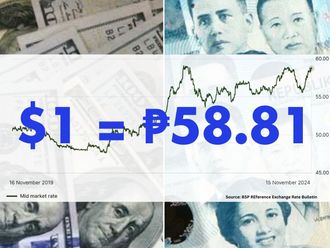
Dubai: Sanctions against Syria, imposed yesterday by the Arab League, are likely to have a crippling effect on the Syrian people and economy which relies on its Arab neighbours for half of its exports and a quarter of its imports. Syria's economy is already reeling from eight months of political unrest, aggravated by US and European sanctions on oil exports and several state businesses.
The list of punitive measures include a ban on Syrian officials visiting any Arab country, the freezing of government assets in other countries, the suspension of flights and a halt to any transactions with the Syrian government and its central bank.
Dr Abdul Hamid Radwan, a leading economist at the UAE Ministry of Foreign Trade, told Gulf News that financial sanctions could negatively affect members of the Syrian regime as they would be dispossessed of any funds they had transferred to other Arab countries.
"The sanctions would also place additional pressure on Syrian traders, who have not yet taken a stance against Al Assad's regime, and make them unable to pay for their imports," he said.
Also the sanctions will directly affect the citizens who already suffer from oil and gas shortages and increases in commodities prices.
A Syrian citizen, Mohammad, 28, said: "Our situation in Syria is getting very critical. Food prices are drastically soaring, gas cylinders are not available in the market as well as we are storing petrol in our houses."
"With the flights' suspension we won't be able to leave the country even for emergency. Travelling through the land borders of neighbouring countries is not safe as two families were killed in the last two days while travelling by land."
This, in turn will encourage the smuggling between Syria and neighbouring countries across the borders of Lebanon, Iraq, Jordan and Turkey.
Radwan said that the smuggling activities will be run by organised Mafia groups which will be controlled by the regime itself.
But the sanctions will also likely affect the Syrian migrants in the Arab world, particularly in the Gulf, as they won't be able to transfer money to their families back home, he added.
Although the country's long closed and centralised economy has made it immune to sanctions, there is no doubt that sanctions will hurt the Syrian regime in the very short term as it is coming from neighbouring Arab countries.












